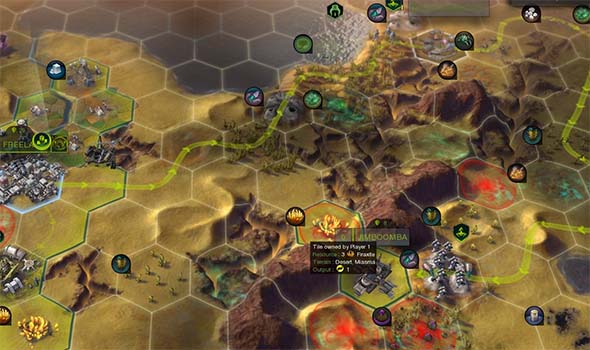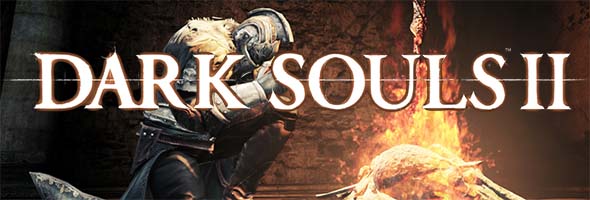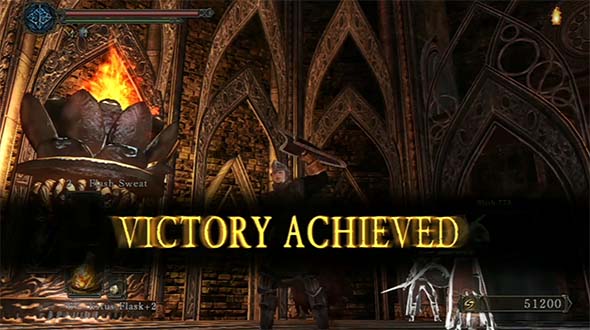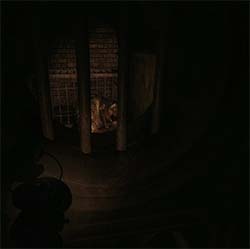A few months ago, the Jimquisition had an episode about gamers criticizing game reviews and reviewers for "not finishing the game". James/Stephanie Sterling correctly points out that this complaint with a game review is most often employed to deflect from valid criticism of a game -- usually because the person complaining likes the game and gets overly defensive in response to any criticism. While I agree with James/Stephanie Sterling's response in the original video, I also have strong feelings about other practical concerns regarding whether a video game reviewer should need to finish a game in order to review it. As an amateur game critic and YouTube essayist, this particular brand of attack against reviews and reviewers is relevant to me, my gaming habits, and my content creation, so I hope that I have a worthwhile perspective about this topic.
This essay was inspired by a recent episode of The Jimquisition.
As for the underlying issue of whether a game reviewer should have to finish a game before reviewing it: the answer to that question is a resounding, absolute, unequivocal "no".
As an amateur, who plays games and creates written reviews and video essays, all on my free time, outside of a full-time job, I cannot play every game to end credits -- let alone to 100% completion or a Platinum Trophy.
And you know what? Neither do most players.
This essay is available in video format on YouTube.
Go ahead, take a look at the achievement or trophy metrics for any game you play. You'll probably find that the achievement for beating almost any game will be owned by well below half of all players, and might actually be less than a quarter of players for many longer games like RPGs. And while there are certainly some players who play offline and don't report their stats to Steam, Microsoft, Sony, or Nintendo, the achievement stats for the vast, overwhelming majority of games is very closely representative of the population, since most players don't go to the trouble of playing "off the grid".
Finishing a game is a relatively rare thing for the average gamer to do, which means the average gamer isn't going to care if a particular review finished the game or not. That average gamer is probably not going to see the end of the game anyway, so a review that only covers the first half or so of the game will still be perfectly adequate and informative for such a player.
Most games are completed by well under than half of all players.

So as an "average gamer" who plays as a hobby and writes reviews and other content on the side, as an un-paid amateur, not finishing a game is good enough for me too. Yes, I will try to finish the main campaign of a game that I review, if it's possible and practical. For most shorter games (with campaigns less than 20 hours), I do, indeed, almost always hit the end credits before I publish a review. It will usually take me a few weeks to do it, which is why, even if I bought the game on release day, my reviews will still be several weeks late, or longer. Most of my reviews are practically retro reviews by the time I get them out.
[More]

I was finishing up my Civ V: Brave New World strategies this fall, and thought that I'd finally have some time to play other games besides Civilization. Firaxis and 2K, however, had other plans. Instead of being able to play other Steam games and getting back to my PS3, instead, I now have Civ in SPACE!
I guess I can't escape Civ so easily...
So is Beyond Earth going to hold my attention, keep me up till 3 in the morning playing "one more turn", and monopolize my PC gaming? Or will it be a short diversion before being shelved in favor of other games?
Table of Contents
Most of the gameplay mechanics of Beyond Earth are variations of equivalent mechanics in Civilization V, with more or less complexity. This makes the game very accessible and familiar for most Civ players, but it also means that Beyond Earth isn't really pushing any gameplay boundaries. Whereas Civ V's transition to a hex grid revolutionized the series, Beyond Earth just feels like more of the same.
Most of the added complexity works in the game's favor, but some mechanics have been simplified such that they almost feel pointless.
Beyond Earth's extraterrestrial setting does play a small factor in the gameplay and differentiates this game a bit from Civilization V. The most prominent displays of this are in the alien life forms and the terrain of the map. The inclusions of canyons as a geography characteristic is mostly superficial, as they function almost identically to mountains. The biggest change is the inclusion of toxic "miasma". Miasma tiles cause damage to units that end their turn on it, and trade units cannot pass through miasma at all.

Miasma damages units and blocks trade routes until you unlock the ability to remove it or survive it.
This adds a satisfying challenge and sense of having to deal with a hostile alien environment.
This adds some challenge to the first half of the game, since miasma can force the player to explore and expand differently than they would in Civ V. Miasma can force your workers to have to avoid improving certain terrain, and may prevent explorers from accessing certain regions of the map or completing some expedition sites. It can also prevent your trade units from following direct routes between cities, which can cause them to follow winding paths far outside your inherent zone of control, making them harder to protect.
Contrary to the developers' claims prior to release, the aliens really are just reskins of Civ V's barbarians. They are counted as "enemy" units to every civilization and inflict zone of control automatically. They spawn randomly from nests that function identically to encampments, and even offer monetary rewards for entering the tile and destroying the nest. The only major difference is ... [More]
aed9db83-3047-4b4d-b015-5efe80732985|3|4.0
Tags:Sid Meier's Civilization, Civilization: Beyond Earth, review, science fiction, space, affinity, Firaxis, 2K Games, PC, Steam, strategy, grand strategy, turn-based strategy, alien, Civilization: Beyond Earth

Despite being very excited about this game and pre-ordering the collector's edition (contrary to my typical avoidance of pre-orders), it took a couple months before I was able to spend much time with it. My strategy guides for Civilization V: Brave New World was a lot of work and took up a lot of time. I was only able to play bits and pieces of Dark Souls II during that time and didn't make much progress. I was hoping to have a review out in time for the PC release, but that didn't happen. Then I was hoping to publish the review before the first DLC hit, but that didn't happen either. I'll probably review the DLC later, once all three have been released.
Full disclosure: I haven't actually finished the game yet, but I do feel that I've played enough of it to be able to write a review. If completing the game changes my opinion considerably, then I will revise this review as I've done with other games in the past (including the first Dark Souls). I've also considered getting the Steam version, since it may be better than the console versions. If I do play that version, I may revise this review to include opinions on that version.
But for now, I've only played the PS3 version,
Table of Contents

Is Dark Souls II a victorious successor to a masterpiece of design and storytelling? [More]
1e979d23-e202-4346-8a43-c52fdd6c81c1|3|3.7
Tags:Dark Souls II, PS3, Dark Souls, From Software, Namco/Bandai, RPG, PSN, hack and slash, fantasy, Demon's Souls, PC, review, pre-order, XBox 360, Xbox Live, co-op, summon, PvP, invader, invasion, phantom, covenant, Drangleic, Majula

Is Frictional Games working on a new IP? I'm a bit curious as to why they outsourced development of the aptly-named A Machine for Pigs to the third-party developer The Chinese Room. Frictional's staff did stay on as "producers" for this game, so I'm sure that the final product is still consistent with what Frictional would have wanted if they had developed it themselves, and I think the overall story was still written by people at Frictional (but I could be wrong on that account). In any case, the change in development team has certainly had a dramatic effect on the way that the new game plays. The very core gameplay of exploring a linear dungeon with a flashlight is retained, but all the mechanics and the underlying feel of the game are completely different than its predecessor. This isn't necessarily a bad thing, as Amnesia: the Dark Descent wasn't perfect.

Once again, the underlying premise that sets up Amnesia: a Machine for Pigs is that your character wakes up in a mansion with no memory of who he is or why he is there. Your early exploration of the mansion reveals some vague threat, and you are forced to descend into a deep dungeon in order to discover who you are and resolve the threat. Along the way, you'll encounter deformed creatures and collect notes and documents from your former self explaining the situation, as well as have the occasional hallucinatory flashback as your memory slowly returns. But if you're worried that this sounds too much like the previous game, then fear not: A Machine for Pigs takes an entirely different approach to the gameplay and has a totally different feel to the entire experience. [More]
d070d945-e6da-4541-a97f-8240050b5cc7|1|4.0
Tags:Amnesia: a Machine for Pigs, Amnesia: the Dark Descent, review, the Chinese Room, Frictional Games, Steam, Victorian, England, industrial, survival, horror, survival horror, mansion, amnesia, Battle of the Somme, Silent Hill, Silent Hill Shattered Memories, Resident Evil, checkpoint, indie gaming

Are you as sick of zombies as I am? They're everywhere. Perhaps the real zombie apocalypse won't be caused by radiation or a genetically-engineered plague; it will be caused by media corporations drowning our brains in zombie entertainment until we all go crazy and start eating each other.
Table of Contents
Fungus zombies
OK, sure, the creatures in Naughty Dog's latest adventure game, The Last of Us, aren't actually "zombies", they are humans infected with a fictionalized variation of Ophiocordyceps Unilateralis. But they're functionally the same thing. The "infected", as they are known as in the game, are mindless, mutated monsters that shamble around and eat any human they become aware of. And if they bite you, you become infected and the fungus takes over your brain, turns your flesh into spore-producing tendrils, and makes you a cannibal.
[LEFT] An ant infected with cordyceps.
[CENTER] A moth infected with cordyceps.
[RIGHT] A human infected with cordyceps, as depicted in The Last of Us.
The game takes place 20 years after the sudden outbreak of the human cordyceps infection that leads to the death of the protagonist's daughter. Society has collapsed into ruin, with the surviving 40% of people (including the protagonist, Joel) concentrated in quarantined ghettos in the remains of major cities. Joel is working as a smuggler, bringing food, weapons, and supplies into the Boston quarantine zone to be sold on the black market, and he is tasked with escorting a young girl, named Ellie, to a research lab out west. Ellie is unique in that she seems to be immune to the cordyceps infection. She was bitten weeks ago, and has suffered nothing more than some ugly skin lesions near the bite; whereas, everyone else begins to turn into a zombie within hours of being infected. This, of course, makes her survival paramount, and Joel must do whatever it takes to ensure her safe arrival at the lab so that the researchers can hopefully study her to find a cure or vaccine. [More]
b37fff55-ed98-484c-be2f-cd521976fb05|5|5.0
Tags:The Last of Us, Naughty Dog, Sony, PlayStation 3, PS3, review, action, adventure, platformer, survival, horror, survival horror, Joel, Ellie, cordyceps, fungus, cordie, zombie, ethics, morality, Hippocratic Oath, ludonarrative, Uncharted, Silent Hill 2, Resident Evil 4
|

| 12 | | | | | | | 60 | | 11 | | | | | | | 55 | | 10 | | | | | | | 50 | | 09 | | | | | | | 45 | | 08 | | | | | | | 40 | | 07 | | | | | | | 35 | | 06 | | | | | | | 30 | | 05 | | | | | | | 25 | | 04 | | | | | | | 20 | | 03 | | | | | | | 15 | | 02 | | | | | | | 10 | | 01 | | | | | | | 05 |
|